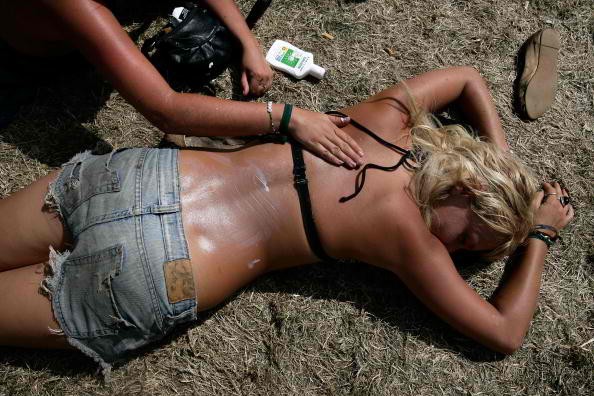With the arrival of the summer season, a majority of people are getting themselves ready for baring their skin at a beach or beside a pool. However, taking care of the skin and protecting it against the ultraviolet (UV) radiation is of utmost importance, according to researchers from Penn State Melanoma and Skin Cancer Center.
An exposure to UVA and UVB radiation from the sun is always harmful to the skin and the overall health of an individual, Dr. Colette Pameijer, explained in an interview with U.S. News. The oncologist and director of translational research at the university also explained that such radiation may cause harm to the skin in the form of a tan or a sunburn that may lead to a lot of problems, including wrinkles and skin cancer.
Pameijer further said that even though people are much more conscious about sun exposure now, it is often difficult to choose from a range of sunscreen lotions and sprays available in the market that carry different ingredients.
According to Pameijer, the sun protection factor (SPF) is an important thing to consider while making the purchase decision, despite the fact that all products available in the market offer a broad range protection against the UVA and UVB rays.
The SPF of a specific sunscreen indicates how many minutes of protection that the product offers while an individual is out there in the sun. An SPF of 30 means 30 minutes of protection, while SPF 55 sunscreen offers almost an hour-long protection against the UV radiation.
The health experts suggest applying a lotion with an SPF of at least 30. However, it is important to understand that the lotion must be applied frequently and regularly.
"The product needs to be used correctly -- reapplied every two hours -- in order to work," Pameijer told the publication. "If you pay a lot of money for a sunscreen and then use it sparingly, you're not really getting the SPF you think."
Another protection that people can chose to purchase includes UV clothing. Also known as sun-safe clothing, UV clothing provides protection against harmful UV radiation while people work, travel or remain outside to play.
Synthetic fibers and clothing material such as acrylic, nylon, lycra and polyester are more protective against UV radiation that bleached cotton, according to the Skin Cancer Foundation. In addition, shiny or lustrous synthetic fabric better at reflection UV radiation than absorbing it, which mostly happens in case of linen fabric.
The following video demonstrates how to apply a sunscreen:



























